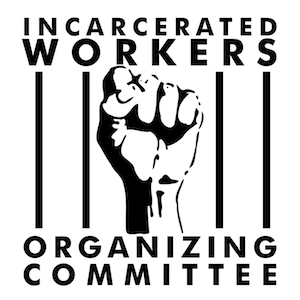New Report Documents Poor Quality of Food and Health Care for Prisoners
April 3, 2018: Kansas City, MO. Widespread problems with food and health care quality are standard in U.S. prisons, according to a new report by the Incarcerated Workers Organizing Committee (IWOC) and Research Action Cooperative. 65% of prisoners reported that food made them sick in the last year and 63% reported being denied needed health care.
Based on a survey of 123 prisoners in 83 facilities in 21 states, the report, Cruel and Usual: A National Prisoner Survey of Prison Food and Health Care Quality, concludes:
Overall, the prisoners describe a prison system that routinely provides inadequate food and health care that endangers their health. Unsanitary conditions, small servings of poor quality food, and lack of attention to special diets are common. Disrespect by health care staff, delayed care, and denial of treatment and medications are also common.
The report can be found at www.incarceratedworkers.org and www.researchaction.net.
Among the report’s findings about food:
- 65% reported that the food made them sick during the last year and 66% reported that they were served food not intended for humans, food with bugs, or moldy/spoiled food during the last year.
- 80% stated that they have been denied meals or given too little food in the last year. About half reported having special dietary needs, and 70% of them did not have their needs met. 69% of respondents rated the food quality as poor.
- Nearly 40% indicated that they were only served fresh fruit or vegetables “once in a while” or “never.”
In detailed comments, prisoners described food that was served in unsanitary conditions and was expired, spoiled or moldy, or contained bugs or rocks. Some containers were labeled not fit for human consumption. Several described getting food poisoning or diarrhea. Many prisoners commented that their food servings were too small or that they were not given enough time to get food. Written comments from prisoners include:
- Prisoner in Kansas: “The portions on the trays are very small and I’m always hungry even after I eat.”
- Prisoner in Missouri: “Our containers we have our juice made and served in are often moldy. We do not have the proper chemicals, like bleach, to clean them out. Our trays and cups are often dirty also. There are rats and roaches in the kitchen too. We also have rats, in the warehouse, where our canteen is stored.”
Among the report’s findings about health care:
- 69% of respondents rated their health care quality as poor.
- 63% reported being denied needed health care during the last year and 54% reported that the health care staff treated them badly in the last year.
- Nearly 40% reported having to wait weeks or months to get care they asked for.
- 60% or more reported not having a physical exam, teeth cleaning, or vision exam in the past year.
- 82% reported needing medications, and about 40% of them reported that they either didn’t get them or sometimes got them.
In detailed comments, many prisoners described rude and disrespectful behavior, routine neglect, denial of care, and poorly trained health care staff. Several prisoners reported being charged excessive fees for care and several described getting inadequate treatment remotely via video conference. Written comments from prisoners include:
- Prisoner in Texas: “I, nor anyone I know on this unit has ever seen a doctor face to face. We are usually seen by a “provider” which is usually an RN through a TV interview and they assess our medical needs by looking at us through a webcam and asking questions.”
- Prisoner in California: “Doctors are argumentative and very dismissive and controlled by custodial officers who dictate which inmate gets what level of care. Custodial staff intentionally lie on prisoners which causes inmates to receive poor care.”
IWOC member Brianna Peril states, “As a labor union with prisoners and free people, IWOC fights for better prison conditions and this report gives prisoners an opportunity to make their voices heard on the crucial issues of food and health care. It’s clear that the U.S. prison system is failing them through this routinely poor treatment that endangers their lives.”
The report concludes that people who are being punished through imprisonment should not also be punished again with inadequate food and health care, and that this callous treatment is often the result of cost-cutting, racism, and an inhumane, punitive approach to imprisonment. IWOC believes that a true investment in positive rehabilitation would provide quality food and health care that values prisoners’ lives.
